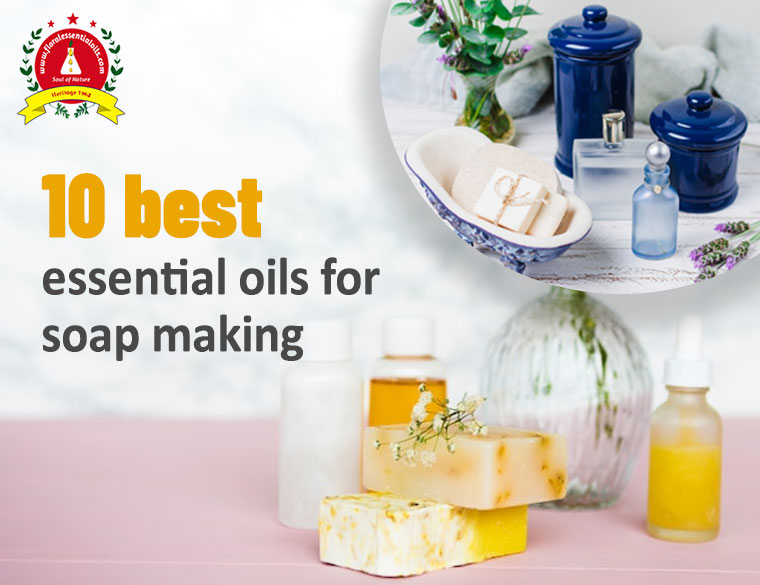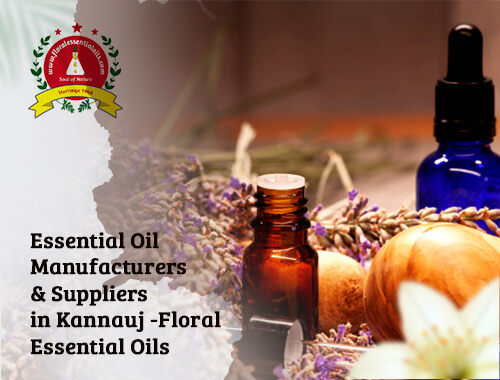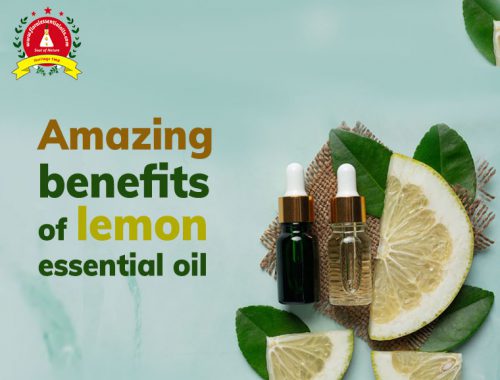One of the useful components of handmade soaps is essential oils. They enhance their fragrance in addition to making them healthier for your skin. They are very easily available at local 100 % natural co2 extracts oils producers in any desired quantities or you can order online to avoid any hassle.
These oils can be combined with other essential oils or used separately to make soaps with distinctive qualities and enticing aromas. The following essential oils work best when making soap:
Lavender Essential Oil
Lavender Essential Oil is suitable for a variety of soaps due to its herbaceous and floral notes. One of the most widely used essential oils today, it can even be found in drug stores. You must exercise caution, though, as only pure and organic lavender essential oil is suitable for the skin.
This essential oil’s compatibility with almost all of the ingredients used to make soap is a plus.
Additionally, you can seamlessly combine them with other essential oils to make blends. Also, if you don’t want to skimp on quality, it is one of the more affordable essential oils. It calms your skin and improves its suppleness and texture.
Lemon Essential Oil
Lemon Essential Oil supports skin lightening and functions as an exfoliant. Because of its advantages, many soap manufacturers use it in their products. This essential oil is good for your skin because it contains a lot of antioxidants. These antioxidants help to keep your skin looking young while also protecting it.
A few drops of lemon essential oil will be sufficient to improve the general caliber of your soaps because lemon essential oil has a high concentration of citric acid. Additionally, your clients will appreciate the energizing lemon scent, which will leave them feeling upbeat and lively after every bath!
Clary Sage Essential Oil
If you want to add herbal and earthy scents to your soaps, clary sage essential oil is a good option. Additionally, it has delicate fruity and floral undertones that will give your soap bars a distinctive scent.
Clary sage essential oil can be difficult to find in physical stores and shops, but it is simple to find online. You should be on the lookout for pure varieties and avoid dummy variants at all costs. It also mixes well with the essential oils of bergamot, cedarwood, ylang ylang, and lemon.
Tea Tree Essential Oil
In addition to being good for your skin, tea tree essential oil smells sharply herbal and camphorous. Your soaps’ aroma can be made distinctive by using this fragrance. Additionally, it aids in reducing tension and anxiety. As a result, it improves the soap bars’ general appeal and usefulness when they are used. Due to its capacity to address a variety of skin issues, manufacturers of high-end soap bars use it.
To give the soaps a stronger, more seductive scent, you can combine it with citrus or spicy essential oils. Clary sage, lemon, orange, bergamot, and rosemary essential oils all mix well with tea tree essential oil. Due to its numerous medicinal and therapeutic advantages, using it as a single essential oil in the soaps is also more than sufficient.
Read More for Tea Tree Essential Oil For The Skincare Rescue
Peppermint Essential Oil
In addition to giving soaps a strong and minty scent, peppermint essential oil combats skin dryness. It relieves irritated skin and aids in preserving the general well-being and condition of the skin.
One of the least expensive essential oils, it blends well with a variety of other oils, including lemon, lavender, tea tree, and cedarwood. It is frequently used to give soap blends a sharp or sweet twist. Additionally, it is simple to find in nearby and online retailers. It is one of the best essential oils for making soap on our list because of all these factors.
Rose Essential Oil for Making Soap
Rose essential oil naturally improves the appearance of your skin, making it a fantastic addition to soaps. Additionally, the soaps’ overall impact and appeal will be improved by the sweet floral scent of this essential oil.
By removing extra oil, skin debris, and dirt from the pores, it leaves your skin clean and fresh. Another reason rose essential oil is used in soap-making formulas is because of its cleansing properties.
Using Grapefruit Essential Oil
The soaps gain a seductive aroma from the grapefruit essential oil’s energizing and blissful scent. Additionally, it has antibacterial and fungicidal qualities that defend your skin against dangerous bacteria and fungi.
Your skin will feel softer and have better texture thanks to grapefruit essential oil. When added to soaps, it also serves as a natural preservative. Discover this oil’s crisp and tangy scent in your luxury soap bars right away!
Turmeric Essential Oil
When making soap, combine turmeric essential oil with milk, cream, and other natural ingredients. In addition to giving your skin and face a natural glow, it will shield your skin from environmental aggressors like sunlight, dust, and wind.
This oil’s emollient properties deeply hydrate your skin and restore its natural tone and texture. Due to its anti-aging qualities, soap makers also favor it.
Essential Oil of Sandalwood
The earthy and delicate aroma of sandalwood essential oil-based soaps is quite inviting and pleasant. It not only makes soaps smell better, but it also acts as a fixative and has moisturizing qualities.
It perfectly complements ingredients like rosewater, milk, turmeric, etc., and helps to increase the elasticity of your skin. Overall, it shows to be a fantastic component for soap-making.
Blue Lotus Essential Oil
Linoleic acid, which is good for your skin and hair, and Vitamin C are both abundant in blue lotus essential oil. It softens and supplies your skin and serves as a natural hair conditioner.
Blue lotus essential oil is good for your skin because it contains flavonoids and minerals. They keep your skin’s texture and moisture intact even after hours and deeply hydrate the pores. It is a special ingredient for making soap because of all these advantages.
Conclusion
Making soap allows you to create products that are tailored to your skin’s color, texture, and other characteristics. Making soap at home is wonderful, but it’s more crucial to know the right platform or source where to buy it.




